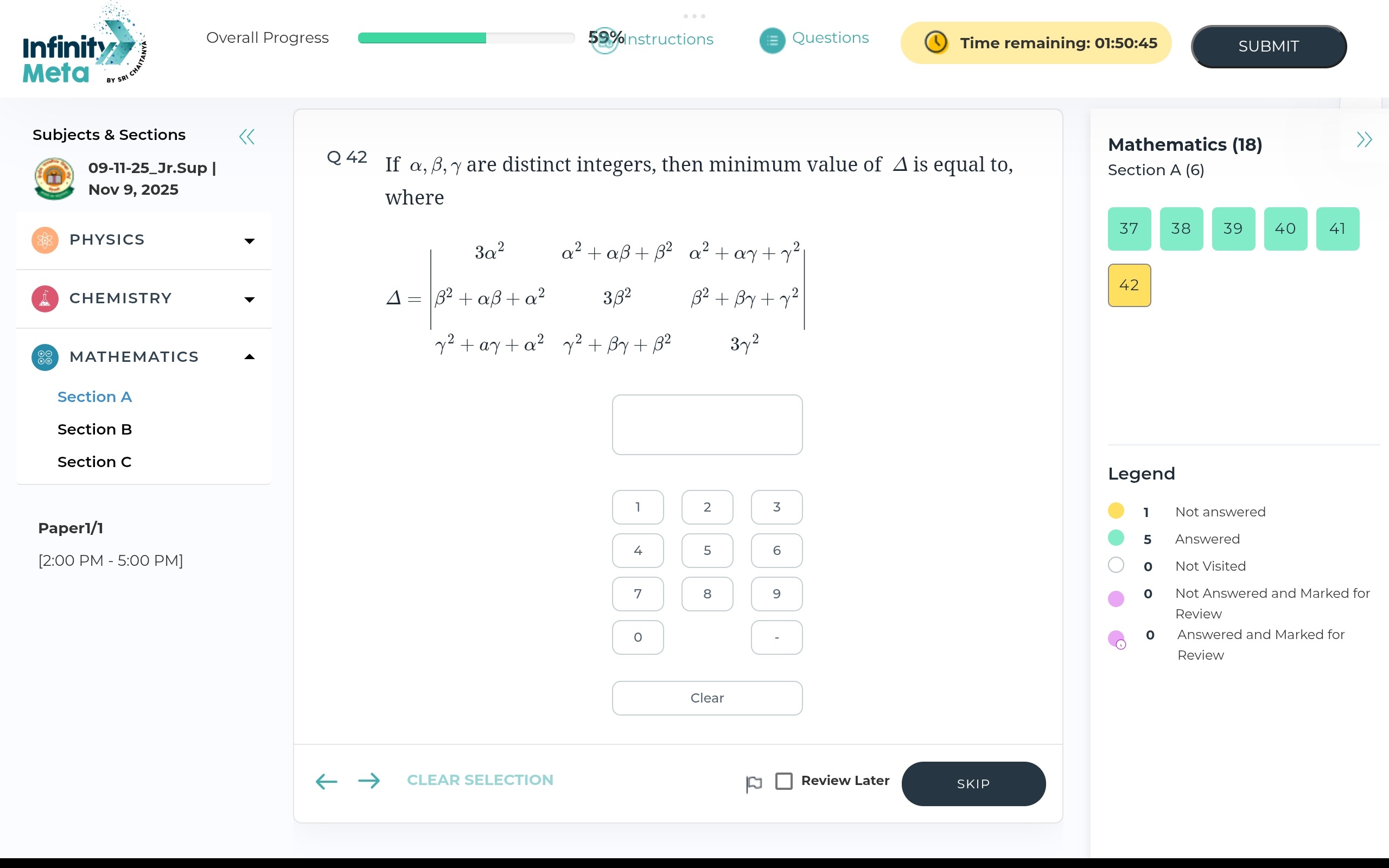Question
Question: If $\alpha, \beta, \gamma$ are distinct integers, then minimum value of $\Delta$ is equal to, where ...
If α,β,γ are distinct integers, then minimum value of Δ is equal to, where
Δ=3α2β2+αβ+α2γ2+αγ+α2α2+αβ+β23β2γ2+βγ+β2α2+αγ+γ2β2+βγ+γ23γ2

The minimum value of Δ is -4.
Solution
Let α=0. Since α,β,γ are distinct integers, β=0 and γ=0, and β=γ. The determinant becomes: Δ=0β2γ2β23β2γ2+βγ+β2γ2β2+βγ+γ23γ2 Expanding along the first row: Δ=0−β2det(β2γ2β2+βγ+γ23γ2)+γ2det(β2γ23β2γ2+βγ+β2) Δ=−β2(β2⋅3γ2−γ2(β2+βγ+γ2))+γ2(β2(γ2+βγ+β2)−γ2⋅3β2) Δ=−β2(3β2γ2−β2γ2−βγ3−γ4)+γ2(β2γ2+β3γ+β4−3β2γ2) Δ=−β2(2β2γ2−βγ3−γ4)+γ2(β4+β3γ−2β2γ2) Δ=−2β4γ2+β3γ3+β2γ4+β4γ2+β3γ3−2β2γ4 Δ=−β4γ2+2β3γ3−β2γ4=−β2γ2(β2−2βγ+γ2)=−β2γ2(β−γ)2 Since β and γ are distinct non-zero integers, β2>0, γ2>0, and (β−γ)2>0. Thus, Δ=−β2γ2(β−γ)2 is always negative. To minimize Δ, we need to maximize β2γ2(β−γ)2. Let's test some small distinct integer values for β and γ (with α=0):
- If β=1,γ=2: Δ=−(12)(22)(1−2)2=−(1)(4)(−1)2=−4.
- If β=2,γ=1: Δ=−(22)(12)(2−1)2=−(4)(1)(1)2=−4.
- If β=1,γ=−1: Δ=−(12)(−1)2(1−(−1))2=−(1)(1)(2)2=−4.
- If β=−1,γ=1: Δ=−(−1)2(12)(−1−1)2=−(1)(1)(−2)2=−4.
- If β=1,γ=−2: Δ=−(12)(−2)2(1−(−2))2=−(1)(4)(3)2=−36.
- If β=2,γ=−1: Δ=−(22)(−1)2(2−(−1))2=−(4)(1)(3)2=−36.
The minimum value observed is -4. It is known that the minimum value of this determinant for distinct integers is -4, achieved when the integers are 0, 1, and -1 in any permutation, or 0, 1, 2, etc. yielding -4.
